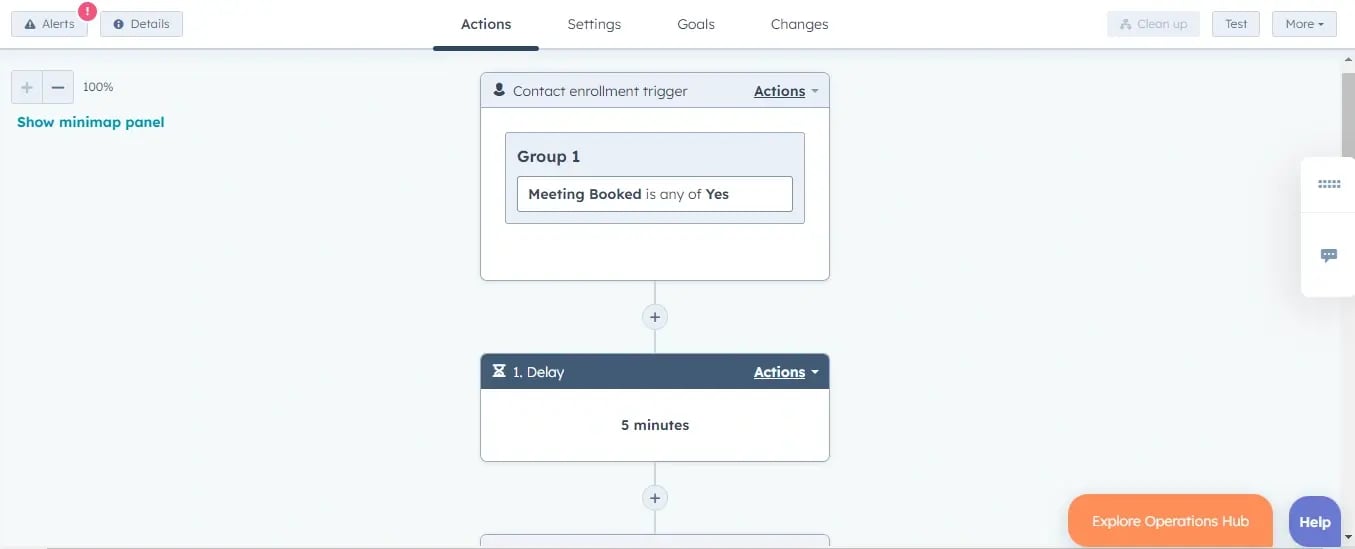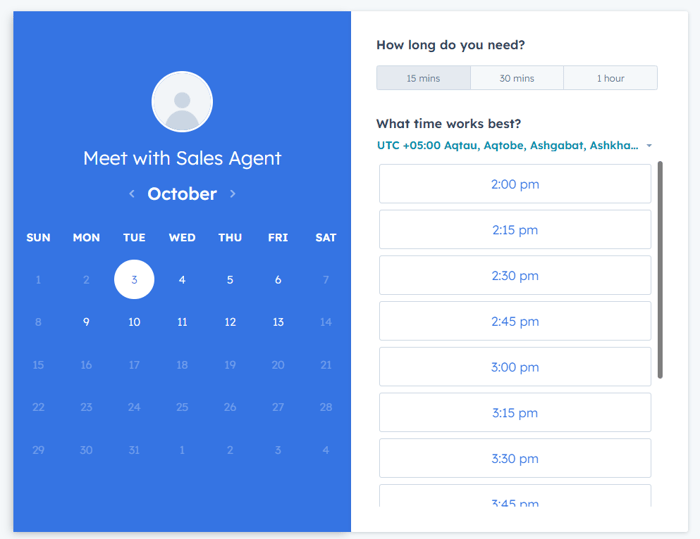The Potential of HubSpot for Manufacturing | An Ultimate Guide
Discover how HubSpot for manufacturing firms can supercharge your ROI. Explore real-world examples and limitations for manufacturing firms using...

Unlock the full potential of HubSpot for law firms with our ultimate guide. Streamline marketing, improve sales, and boost client engagement effortlessly
HubSpot is a powerful, all-in-one platform designed to help businesses manage marketing, sales, customer service, and client relationships in one place. While it was originally created with marketing teams in mind, HubSpot has evolved into a highly beneficial tool for professional services, particularly for law firms.
For law firms, HubSpot offers a structured approach to transform their marketing strategies and to attract new clients, manage cases, streamline communications, and track performance, all without the need to juggle multiple tools. It replaces scattered spreadsheets, endless email chains, and outdated CRMs with one centralized system.
Moreover, it improves communication, contact creation and management, lead scoring, and client engagement in the digital age.
To assess HubSpot's compatibility with law firms, we've compiled a comprehensive list of essential features required by legal practices and evaluated their availability within the HubSpot platform.
| Features | Availability in HubSpot? |
| Task Automation and Workflows |
✔️ |
| Client Communication History | ✔️ |
| Contact Relationship Management | ✔️ |
| E-signature Support | ✔️ |
| Client Retention Analytics | ✔️ |
| Client Intake Forms | ✔️ |
| Integration with Legal Research Databases | ❌ |
| Legal Expense Tracking | ❌ |
| Reporting and Analytics | ✔️ |
| User Permissions and Roles | ✔️ |
| Data Security and Compliance | ✔️ |
| Mobile Accessibility | ✔️ |
| Automated Emails | ✔️ |
| Marketing Automation | ✔️ |
| Lead and Opportunity Tracking | ✔️ |
| Referral Tracking | ❌ |
| Client Onboarding Workflow | ✔️ |
| Task and Reminder Management | ✔️ |
| Billing and Invoicing | ❌ |
| Time Tracking | ❌ |
| Matter and Case History Tracking | ✔️ |
| Case Management | ✔️ |
| Calendar and Appointment Scheduling | ✔️ |
| Contact Management | ✔️ |
| Legal Document Templates | ✔️ |
Undoubtedly, HubSpot provides an extensive array of customizable features tailored to meet individual business requirements. Nevertheless, it's essential to acknowledge that there can be certain limitations in certain situations.
To maximize the advantages of HubSpot and realize a higher return on investment, a clear understanding of your specific goals and objectives is crucial. Should you encounter any challenges, the availability of HubSpot consultants ensures the seamless and prosperous operation of your endeavors.
Essentially, HubSpot operates as a CRM at its core and focuses on providing essential features while curbing unnecessary elements. Lawyers can leverage the Marketing Hub to streamline marketing automation and monitor data across all campaigns. The Sales Hub can be used to effectively oversee one's sales funnel and expedite the process of finalizing deals.
Following are some HubSpot Marketing Hub features that a law firm can use for better lead capturing and nurturing.
Blogs are essential for client education and lead generation. HubSpot's user-friendly drag-and-drop editor empowers small and medium-sized law firms to create content easily, reducing the need for hiring developers.
For instance, divorce lawyers can enhance their online presence by publishing articles, how-to guides, FAQs, and legal tutorials on divorce and separation topics. These informative resources can attract potential clients who, while engaging with the content, can be seamlessly converted into leads through strategically placed calls-to-action and forms.
With the help of HubSpot marketing automation, you can set your marketing campaigns on autopilot by using workflows and bot builders.
Imagine a law firm, let's call it Smith & Associates, that harnesses HubSpot's marketing automation to provide top-notch client care. They send tailored follow-up emails, share valuable legal insights, and handle appointment reminders automatically. This proactive approach boosts client satisfaction and loyalty while also giving the firm's legal team more time to focus on their cases.

HubSpot integrates with major social media platforms, including Facebook, Twitter, Instagram, and LinkedIn, simplifying social media management with automated scheduling and posting from a single platform.
For example, an XYZ law firm can use HubSpot's social media management to schedule and share legal insights, case studies, and client testimonials on social platforms. This maintains a consistent brand image, and with performance analysis, they optimize their strategy for attracting potential clients and bolstering their legal reputation.

The reporting tools provided by HubSpot enable law firms to efficiently monitor and assess the efficacy of their targeted communications.
For instance, a law firm can track website traffic, email campaign performance, and lead conversion rates, allowing them to make data-driven decisions to optimize their marketing strategy. This enables the firm to allocate resources more effectively, identify areas for improvement, and ultimately increase client acquisition and retention.
Source: HubSpot
HubSpot's user-friendly sales software boosts efficiency, nurtures customer relationships, and supports growing sales teams. Here are some standout features for law firms within HubSpot Sales Hub.
Using HubSpot's contact management, Law firms may consolidate client data, reduce administrative operations, and improve communication, while enhancing customer experience.
For example, you can efficiently manage client relationships using HubSpot's contact management. You can centralize client data, track interactions, and segment contacts, enabling personalized legal services.

Credits: Hubspot
Law firms can use deal management for their specific needs, including case tracking, client management, revenue tracking, sales pipeline management, etc.
Imagine XYZ Law Firm in action. They rely on HubSpot's deal management to keep tabs on their legal cases and client interactions. It helps them stay on top of case progress, allocate resources wisely, and ensure they never miss a follow-up. All of this translates to smoother case management and happier clients.
HubSpot for law firms allows users to utilize HubSpot’s sequence tool based on their needs and demands.
For instance, a law firm can develop onboarding sequences for new clients by sending them emails, sharing essential documents, and more. Sequences can also be used to automate appointment scheduling and reminders for consultations.
Law firms can use HubSpot's appointment scheduling feature to streamline client consultations. Clients can easily book appointments online, reducing administrative tasks. This ensures efficient scheduling, improves client satisfaction, and enhances the firm's overall productivity.

HubSpot's Content Hub offers flexibility for marketers, robustness for developers, and delivers a personalized, secure experience for your customers. Here are key features tailored for law firms:
HubSpot permits you to swiftly create landing pages in-house to get a visitor into the sales funnel without any distractions.
For instance, if a law firm runs an ad campaign on divorce-related issues, the landing page will get leads. It will also track performance at an advanced level.
Smart Content and Personalization provide legal practices with effective means of addressing the unique needs of each website visitor. It allows them to show users content related to certain practice areas or legal services depending on their behaviors.
For instance, if a user has been perusing material on divorce law, the website may dynamically display information and CTAs related to divorce law.
While HubSpot boasts a set of features that can undoubtedly contribute to the growth of a law firm, it's equally important to address specific limitations that may come into play. The following points outline some of the limitations that a law firm may encounter with HubSpot.
HubSpot does not support built-in time-tracking features. With wide-ranging HubSpot tools for client retention, a lack of time tracking is a constraint.
Law firms rely on it for billing clients, managing internal operations, and evaluating the productivity of their legal teams.
Billable hours are a common basis for billing in law firms. To effectively record billable hours, legal professionals have to utilize several non-integrated time tracking platforms or rely on manual techniques. This can lead to invoicing errors and under or overbilling clients.
HubSpot, since it is a general tool for all industries, doesn't have built-in compliance and controls that a law firm may need to manage client intakes and interactions.
When law firms start looking for technology to organize their practice, one of the first options they usually come across is a “legal CRM.” These are customer relationship management systems designed specifically for lawyers, and many of them do a decent job at managing basic client information and case files.
However, when you put them side by side with HubSpot, the differences become clear. HubSpot is a full business growth platform that can transform how law firms attract, manage, and serve clients.
Here is a comparison chart with the top legal CRMs.
| Features | HubSpot | Clio | Lawmatics | Law Ruler |
| Core Purpose | All-in-one CRM + marketing, sales, and service platform | Case and practice management | Legal CRM with client intake & automation | Legal CRM focused on intake & marketing |
| Client Management | Full CRM with pipelines, automation, and analytics | Strong case and contact management | Good client intake tracking | Lead and intake management |
| Marketing Tools | Advanced marketing hub, email campaigns, SEO tools, automation | Very limited marketing features | Email campaigns, client nurturing, and intake forms | Email, SMS, and campaign tools |
| Automation | Highly advanced workflows for sales, marketing, and service | Basic task reminders | Legal-specific automation for intake & follow-ups | Automated lead capture and reminders |
| Reporting & Analytics | Detailed dashboards, ROI tracking, and marketing analytics | Basic case and billing reports | Client intake and conversion reporting | Lead tracking and intake analytics |
| Integration Options | Large integration ecosystem across industries | Integrates with legal tools and accounting | Integrates with some legal tech tools | Focused integrations for legal intake & practice |
| Best For | Firms wanting growth, marketing, and client management in one place | Firms needing practice & case management | Firms wanting automated client intake | Firms focused on lead intake & marketing basics |
Most legal CRMs, like Clio, focus on case management and client records. These tools help keep your law practice organized. However, while they cover the operational side of things, they don’t always help firms expand their client base or refine their marketing strategies.
Their main features usually include:
Storing client contact information and case details
Document management and sharing
Appointment scheduling and reminders
Billing and time tracking
Basic communication logs
Lead generation tools
Marketing automation
Sales pipeline management
Advanced reporting
HubSpot for law firms serves as a valuable resource. HubSpot’s CRM abridges the laborious process by empowering law firms to customize their outreach to a particular clientele. The User-friendly interface of HubSpot is a key asset, allowing law firms to focus on their competencies while enhancing their performance. However, law firms should fully understand their strengths, weaknesses, and limitations to get the most out of HubSpot.

Discover how HubSpot for manufacturing firms can supercharge your ROI. Explore real-world examples and limitations for manufacturing firms using...

Explore the potential of HubSpot for B2C to increase sales and growth. Discover compatibility, features, and real-world use cases for informed...

Discover the power of CRM for manufacturing with our ultimate guide. Navigate through key expert insights to choose the best CRM for manufacturing...